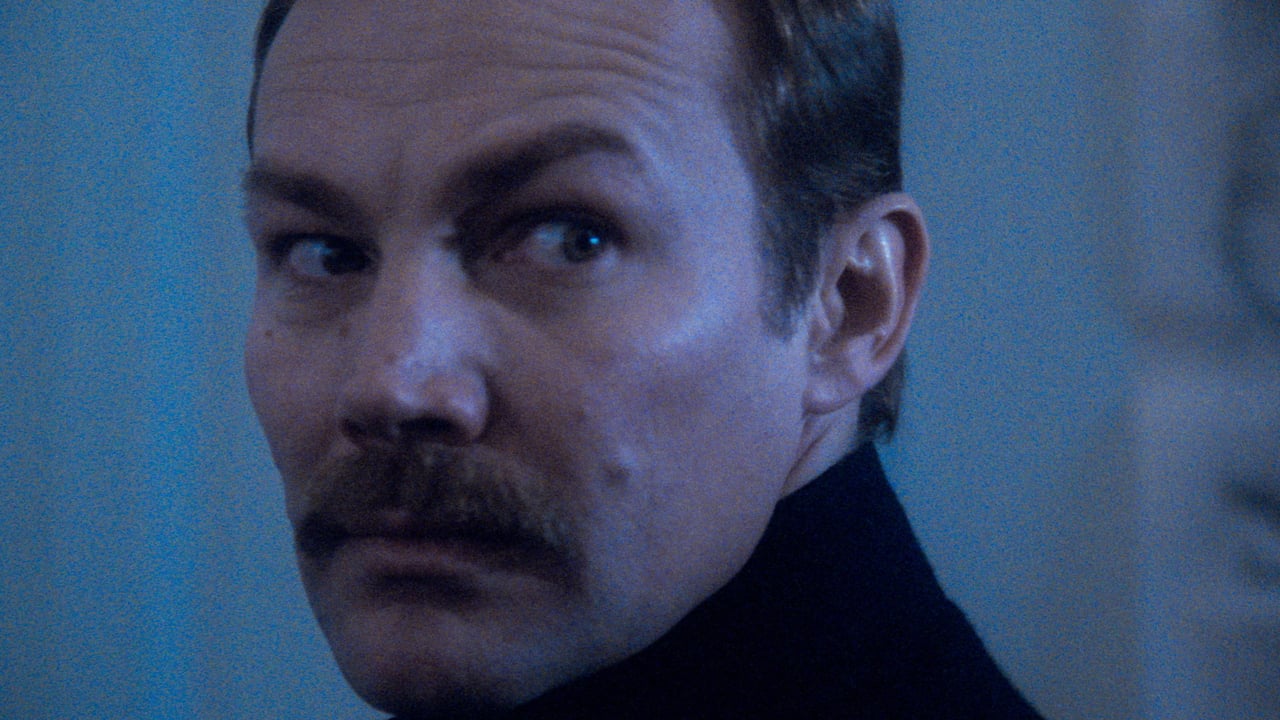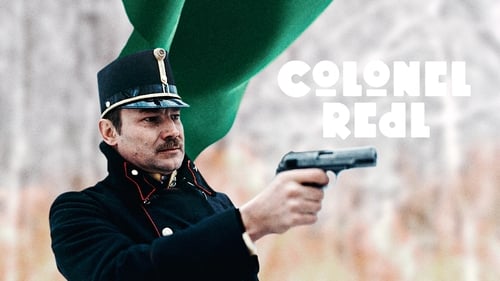


The successful collaboration of Istvan Szabo with the Austrian actor Klaus Maria Brandauer in MEPHISTO (1981) resulted in another sensational movie, OBERST REDL (1985): again a story of a man in the German speaking country, again psychological theme of self confidence, again personal tragedy. However, in spite of the similar aspects that both movies share, the latter appears to attract in a different way.Is it history depiction that attracts? While MEPHISTO was a story of an actor who desired appreciation and acceptance from the Nazis and, by means of compromise and adjustment, hoped to survive (being at the same time a very realistic insight into historical reality), OBERST REDL, based upon John Osborne's play "A Patriot for Me" is a story of a soldier devoted to the Austro-Hungarian Empire. Living in its fading period, he gets through promotion and degradation. Yet, unfortunately, history is poorly executed. The depiction of the empire does not appear convincing. The Habsburgs are overly "cruel and cold". As a result, relating Redl to Mephisto and the background power the both characters serve would surely harm the Habsburgs since Mephisto cannot be understood without the Nazis and Redl without the Habsburgs. So what attracts in the movie and involves the viewer? This is the story of a life...a very unique insight into the main character's feelings and experience. His fanatical devotion that leads to a personal tragedy; a "son of the emperor," as called once by a priest in church, that turns into a "traitor"; an ambitious soldier that becomes an indefatigable spy. Brandauer does a perfect job in the role and I dare claim that, in the matter of the lead role, Redl is much more appealing than Mephisto. He represents a blind service of anyone who absolutely believes in political systems, governing bodies and who places all his hope in military career when war is more likely to break out. Redl is not a particular history but history in general that so often experiences enthusiasm, devotion, trust, success, but also disappointment, disillusion, fear, despair and madness. History personified in human being. I am aware that this aspect was also present in MEPHISTO, but here, the character can be analyzed within history or outside history.But from this clearly psychological analysis of the movie, we can easily switch to general political aspect. "I hate politics" says Redl after unpleasant events and disillusions. Why? Because politics leads him to do the things he would probably never do out of his free will. These are searches, imprisonments, investigations where people commit desperate acts including suicide, where friends turn into enemies, where one becomes Judas and where there is no room for humanity and forgiveness. It's important to mention the disturbing search at Victor Ullman's.A lot of thought provoking moments will draw your attention. First, consider Schorn's plot and the fatal duel. Who was guilty? Is death so easy to accept? I also reflected on the case of the Jews. Redl announces that contacting Jewish people will be unwelcome or, in most extreme cases, punished; yet, it is him who in the following scene writes a letter to Dr Sonnenschein, a Jew. Aren't we brutally masked among other people? Doesn't political correctness blind our "selves"? The famous mask ball in which Redl takes part clearly says for itself...As for performances, they are very good. As I have already mentioned, Klaus Maria Brandauer does a great job portraying a man who is not that easy to be discovered or interpreted. On the one hand, he is so desirous of personal military career, on the other hand, he doubts... I also loved Jan Niklas as Kristof Kubinyi, Alfred Redl's friend whose fate occurs so unexpected. Gudrun Landgrebe gives a memorable performance as Katalin Kubinyi for whom Redl seems to care and whom Redl really loves. And marvelous presence of Armin Mueller-Stahl as the Crown Prince - he supplies the role with a sense of royalty.Except for the cast, the film's strong point is the excellent use of visual effects, like locations, wardrobe and sets. It's magnificent, luxurious, elegant and very subtle. In one little moment, Redl sees his emperor, Franz Josef, standing at the lake and is absolutely overwhelmed by seeing his "Kaiser". The scene is as if a moving picture from the old photos that can be found in Austria and that remind us of the charming but lonely years of the late emperor.OBERST REDL is indeed an important movie to be seen by film fans. Yet not for the sake of history whatsoever but for the sake of great thought provoking content. Does the world judge our lives justly?
... View MoreThe film traces the military and romantic careers of Colonel Alfred Redl from his humble beginnings, through a military academy, into the Austro-Hungarian army, to the guileful environment of high political intrigue, to his ultimate altruistic suicide in 1913. It's supposedly based on a true story but since so little seems to be known about the true story, the epistemology of the plot is questionable. Nobody really knows what happened.Brandauer delivers a remarkable performance, displaying great range, especially for a man with a face of such ordinariness. He looks like a guy who should be managing the produce section of a supermarket. Yet for all the talent of Brandauer and director Szabo, we don't get to know too much about what's going on inside Colonel Redl's head. The role doesn't give him a chance to pour out his soul to anyone, and, indeed, it's improbably that the real Redl would have done any such thing. His marriage, to a good-looking babe who loved him, was a matter of convenience. His friendships with his colleagues was constrained out of necessity because of Redl's latent homosexuality and because, after all, real men don't talk about their feelings -- they blow their brains out, but they don't talk about their feelings. Example: How does Redl feel about his early youth in the provinces? Well, while passing through his home town, he instructs the driver to pass the old house in which he spent his childhood, and he rubs a vacancy in the frosted window so that he can stare at it without expression for about five seconds. What's going on? What wheels and gears are turning in his memory, if any? It's anyone's guess.Nice score. Nice period decor and wardrobe. Nice performances from the other players, especially Armin Mueller-Stahl as ruthless Archduke Franz Ferdinand. He has such handsomely clear blue eyes, and he's soft spoken, reasonable, and as treacherous as a rattlesnake. Not that it does him much good, if you remember what started World War I. Elegant music -- Strauss and Chopin. Great marches, full of traps and whistling piccolos and irony. Makes you want to become an officer in the army in 1913 so you can shoot yourself.The film is paced kind of slowly and the intrigue is never overstated, so a certain amount of patience and attention is required. If anyone has a mind adjusted to the lightning-fast editing of a modern action movie, he's unlikely to find this film satisfying. The rest of us will find it interesting and, in the end, rather tragic.
... View More"Colonel Redl" (German, 1984): Starring Klaus Marie Brandauer, directed by Istvan Szabo. This is the second film of a trilogy. (The first, "Mephisto", the third, "Hanussen" I do not own, but will try to find for rental.) Here we are in Germany again, but before WWI. A young man decides that the only way to raise himself from his peasant roots is to enter the aristocratic military world and is willing to do anything to get in, stay in, and advance in. This he does, but there's always The Price. He slowly loses those things and people which held any meaning or joy for him. He finds himself an amateur in a world that is completely Darwinian, and long-practiced in the art of manipulation. Like "Mephisto", the ladder climber seems to reach spectacular heights, only to be tossed down when it most serves those who were never out of control. These films of Szabo start light, start fluffy, and slowly change into foreboding, evil, hopeless stories with NO optimism towards the human spirit, organized groups of humans, or Time being a teacher. They are very insightful essays on these subjects.
... View MoreThis film evokes powerfully the period and place in which it is set. Its plot is both interesting and intelligent. The acting is of the highest calibre; both Klaus Maria Brandauer and Gudrun Landgrebe are both world class artists. Viewers should see more German film. This is a stunning piece of work by a director of great insight and ability.
... View More